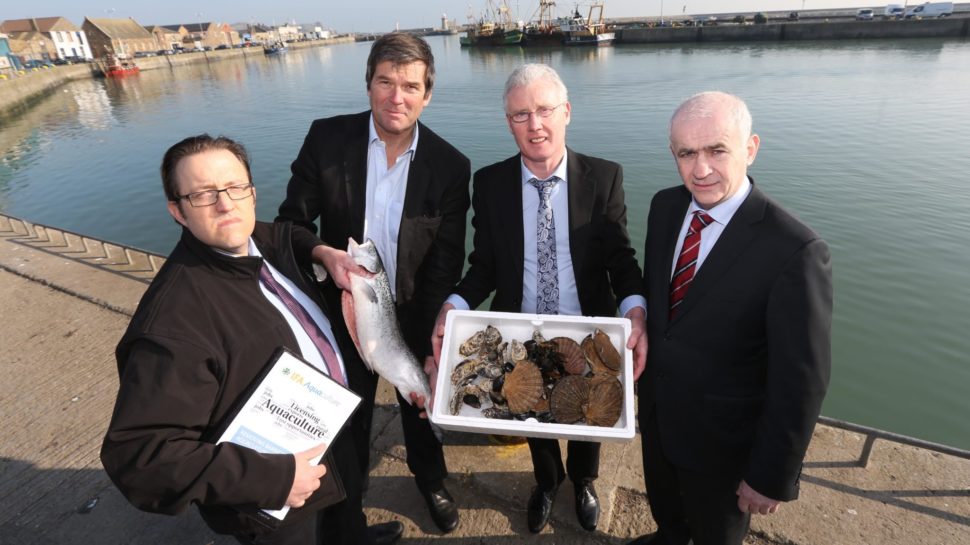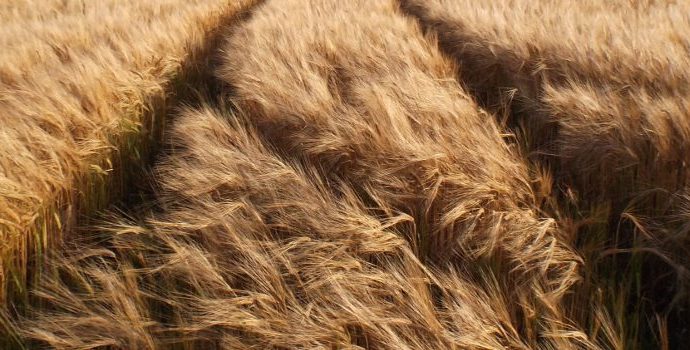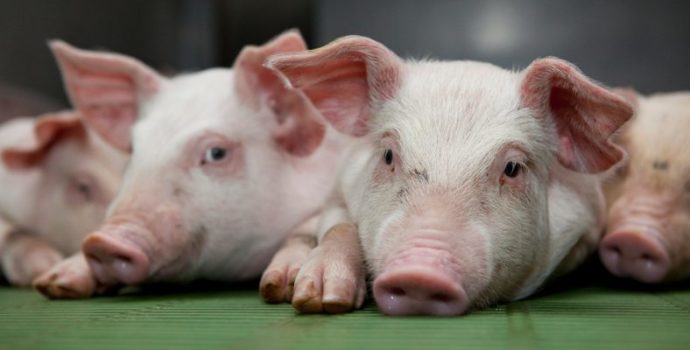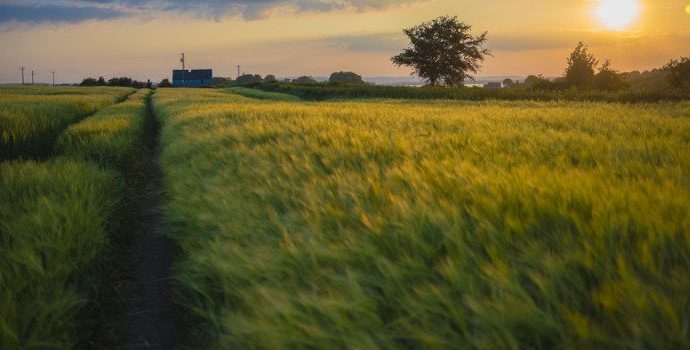IFA Calls on Coveney to Fillet Excessive Bureaucracy Blocking Marine Jobs and Exports

IFA President Eddie Downey has warned that job and export targets in peripheral coastal areas cannot be met without a radical streamlining and reprioritisation of the bureacractic bottlenecks stalling the industry.
In a report to the Minister published today (Tues), the IFA calls on the government to actively support the Food Harvest 2020 aims to increase aquaculture output starting with a reduction in the number of competing agencies and officials holding back the sector.
The report highlights delays in fish farm licencing decisions costing coastal areas up to €60 million in lost investment over five years. It criticises delays costing the economy tens of millions in unfilled orders for fish and shellfish, as well as 2,000 skilled and semi skilled jobs with a huge impact on peripheral local services and infrastructure.
IFA points out that the Irish salmon sector would only fill a corner of one Norwegian fjord but has delivered vital jobs in coastal areas Donegal, Mayo, Galway, Cork and Kerry and is one of the longest surviving industries in those areas. Despite government inertia, Irish farmers have carved a niche at the high end of the organic market.
The report contrasts our situation with Scotland, with the same EU rules, where the Orkney Islands farm more salmon than the entire country of Ireland. IFA also points out that our international competitors are being encouraged by access to EU schemes denied to Irish farmers to fill gaps in the market and provide employment in coastal areas.
IFA Aquaculture Chairman Jerry Gallagher said, “The logjam can only be broken by putting clear, agreed steps driven by economic and employment targets where the delivery of jobs in a proven sustainable industry takes precedence. The six state agencies, nine statutory consultees, four Government departments and seven-person appeals board* which currently take endless months and years arguing their own vested interests. The clearly visible bottlenecks to progress must be removed to secure a future for our coastal communities led by a clear management focus and action at senior departmental level”.
“It is clear from IFA’s report that even modest increases in output and employment in aquaculture contained in the Government’s own policy, “Harvest 2020”, are beyond the capacity of the state to deliver. While rudderless agencies and departments engage in endless, expensive bureacracy (decisions taking over seven years in some cases) fish and shellfish farmers are frustrated to the point of abandoning a sector with obvious potential that is being strangled by public service inertia”.
Jan Feenstra of the Irish Salmon Growers’ Association said the report highlighted concrete examples of failures at national level impacting on confidence, investment and growth in the industry. “Decisions which take months and are dealt with transparently in the salmon sector in Norway and Scotland can take many years here. Unilateral policies which prevent us from fulfilling customer needs and employing more people have reduced the size of the sector from a high of over 20,000 tonnes in 2001 to today at just of half that output. Losing criticial mass and crucial marketing opportunities in today’s fast paced food export business puts unnecessary pressure on Irish companies with the skills, markets and premium product but not the government will to succeed.”
Eddie Downey concluded, “IFA acknowledges that Minister Coveney has focused his Department’s licensing division efforts on individual bays with large numbers of licensees and our members in those areas are grateful that their basic right as producers to a working licensing system has finally been granted. That should not distract from the fact that there are hundreds of good farmers with excellent products and business plans with applications that will take many more years to process unless urgently needed management momentum is injected into the system. The aquaculture licensing system does not square with the phrase “the best little country to do business in” as any sensible investor would be forgiven for turning their back on this bureacratic nightmare.
“Every week our members are declining good commercial business and investment because of a lack of decisive action and hands-on management of the licensing problem. Long term confidence can only be achieved with a trimmed down bureacracy guided by a clear plan for jobs and exports under a streamlined and business-friendly licencing process.”
ENDS
- Agencies involved in determining aquaculture licence applications:
Dept of Agriculture: Aquaculture and Foreshore Management Division, Dept of Agriculture: Engineering Division, Bord Iascaigh Mhara (BIM), Marine Institute, Sea Fisheries Protection Authority. National Parks and Wildlife Service
- Bodies which must be consulted during determination:
BIM, Udarás na Gaeltachta, NPWS, Bord Failte, Commissioners of Irish Lights, Dept of Transport, Dept of Communications and Natural Resources, Dept of Arts, Heritage and the Gaeltacht, Marine Survey Office, Relevant Local Authority, Inland fisheries Ireland, Local Harbour Authority,
- Bodies involved post determination: Aquaculture Licence Appeals board – chairman and six members




